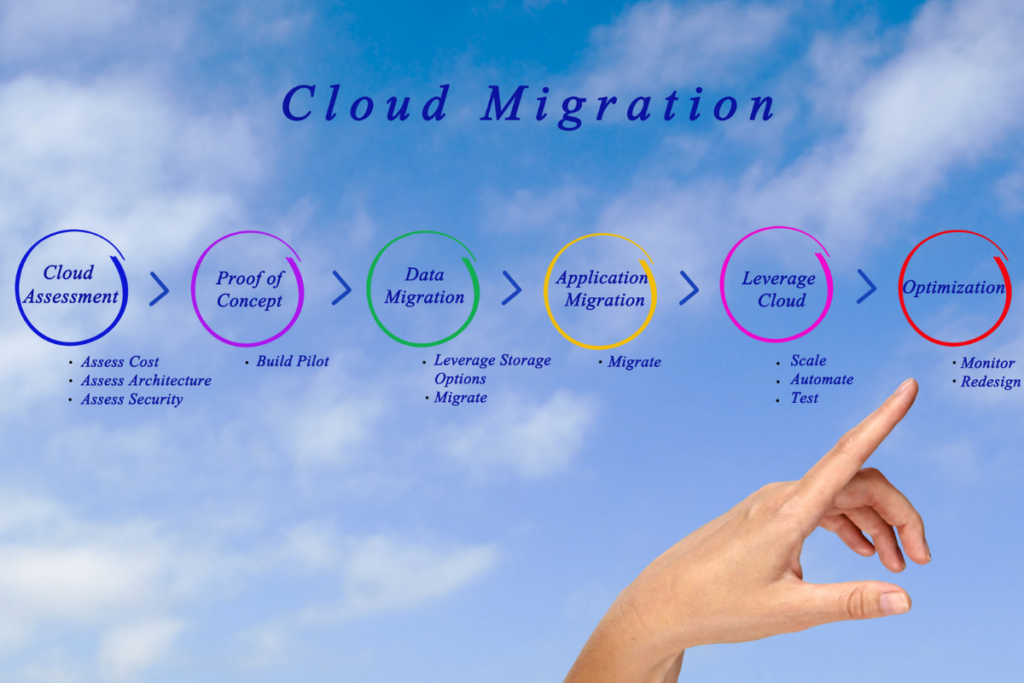Cloud computing is one of the hottest technologies in the IT space right now, and a key enabler for successful digital business transformation. For the consumer electronics industry, cloud computing services offer an opportunity to rethink customer relationship management, improve governance and transparency, transform operations, and increase business agility. Cloud computing technology is being used by many digital transformation service providers as the primary tool to start modernizing their businesses.
Cloud computing systems have transformed enterprise IT and application architectures, transforming a rigid set of solutions into a truly pragmatic and scalable software group that is constantly transforming to meet the needs of organizations and customers. Cloud computing has completely changed the architecture of business computing and software, transforming a rigid set of services into an iterative and scalable set of applications that are constantly changing to meet business and consumer needs. Cloud computing is critical for ambitious companies to move and transform quickly, meet high customer expectations, and shape their business for the future. The cloud enables consistent innovation, providing a strategic advantage and helping you stay competitive in today’s marketplace.
The use of the cloud means that your operations must be based on the online mode and not on local hardware and software. The cloud allows you to automate data entry, storage and analysis, as well as other workflows such as planning. The cloud offers much more storage capacity than on-premises options, and data management can be automated much more easily and completely in the cloud than even with local software.
In addition to adopting cloud solutions, companies must integrate new technologies that accelerate, automate and improve their business, such as artificial intelligence, machine learning, big data analytics, and the Internet of Things (IoT). But first, for the CIO team, CFOs, COOs and CIOs need to expand their horizons beyond the cost paradigm, refocus on velocity to value, and leverage the cloud’s ability to serve as a rich data store to deliver savings and savings while significantly increasing system agility. higher returns. and sustainability. Cloud computing services, including architecture, development, implementation, migration, cloud solution optimization, and cloud data analytics, help consumer enterprises transform their business models and operations with greater flexibility, scalability and efficiency, elevating their operations to a higher level. Focused on cost-effective solutions, cloud computing is the primary engine of today’s digital economy, enabling leading companies to innovate, work and conduct business faster and more efficiently.
The cloud plays an important role in the implementation of the digital model, providing access to the “All as a Service” model by building several automation processes to create a well-functioning orchestration system. The cloud greatly enhances the ability of technology companies to quickly and smoothly scale their operations. Small retailers have seen growth through integration and a gradual move to the cloud to reduce operational infrastructure costs, improve security, provide real-time inventory access, and ensure a seamless user experience.

Many organizations have not yet done so, but it is clear that in the digital transformation economy, hybrid clouds and multi-cloud architectures will play a leading role, and organizations will begin to create fully cloud-based services within a specific business. Of course, there are not many examples of companies that are already this far, and not all companies can move in this direction, but it is clear that in the future, the cloud migration will also take a more important place in the transformation of your business, playing a leading role for hybrid cloud.
The cloud enables businesses to quickly scale and adapt, accelerating innovation, increasing business agility, simplifying operations, and reducing costs. The cloud revolution has given companies the opportunity to achieve maximum business goals and gain a competitive edge. Businesses need the tools to improve efficiency, productivity, and overall performance in today’s competitive environment, and the cloud offers a flexible means of expansion.
The cloud computing model creates opportunities for savings and innovation, with the ability to synchronize modern and legacy systems, provide products and services to anyone and everywhere, and create highly resilient business models. That is why cloud computing solutions and services are penetrating the business world every minute and changing it for the better.
With the ability to scale business applications, leverage analytics, facilitate collaboration and enable greater digital transformation for the future of the workplace, the cloud is no longer an “if” question for businesses, but rather a “when” question. The cloud offers business leaders a platform to stay ahead and move forward when it comes to digital transformation, and the next phase of cloud computing will go beyond standard service and support to help accelerate the development of the workplaces of the future.
Whether organizations are expanding their healthcare infrastructure, streaming new content to their customers, using robots for their warehouse space, or launching their next cloud-based fast food restaurant, the cloud is the engine behind every new business opportunity. As business leaders are increasingly involved in IT purchasing decisions (often in the cloud in practice) and as IT is increasingly required to enable rapid development, deployment, deployment, and scaling, cloud computing is seen as more than just on-demand services. applications (SaaS or Software as a Service) or, more simply, an additional phenomenon.
A common move of business applications to the cloud is when organizations implement SAP/CRM in the cloud, providing flexible availability and simplified server/software configuration. A hybrid cloud can accelerate the delivery of applications and services, so companies can pair on-premises systems with an external cloud provider for greater efficiency and performance, and customers can manage applications both locally and in the public cloud.



